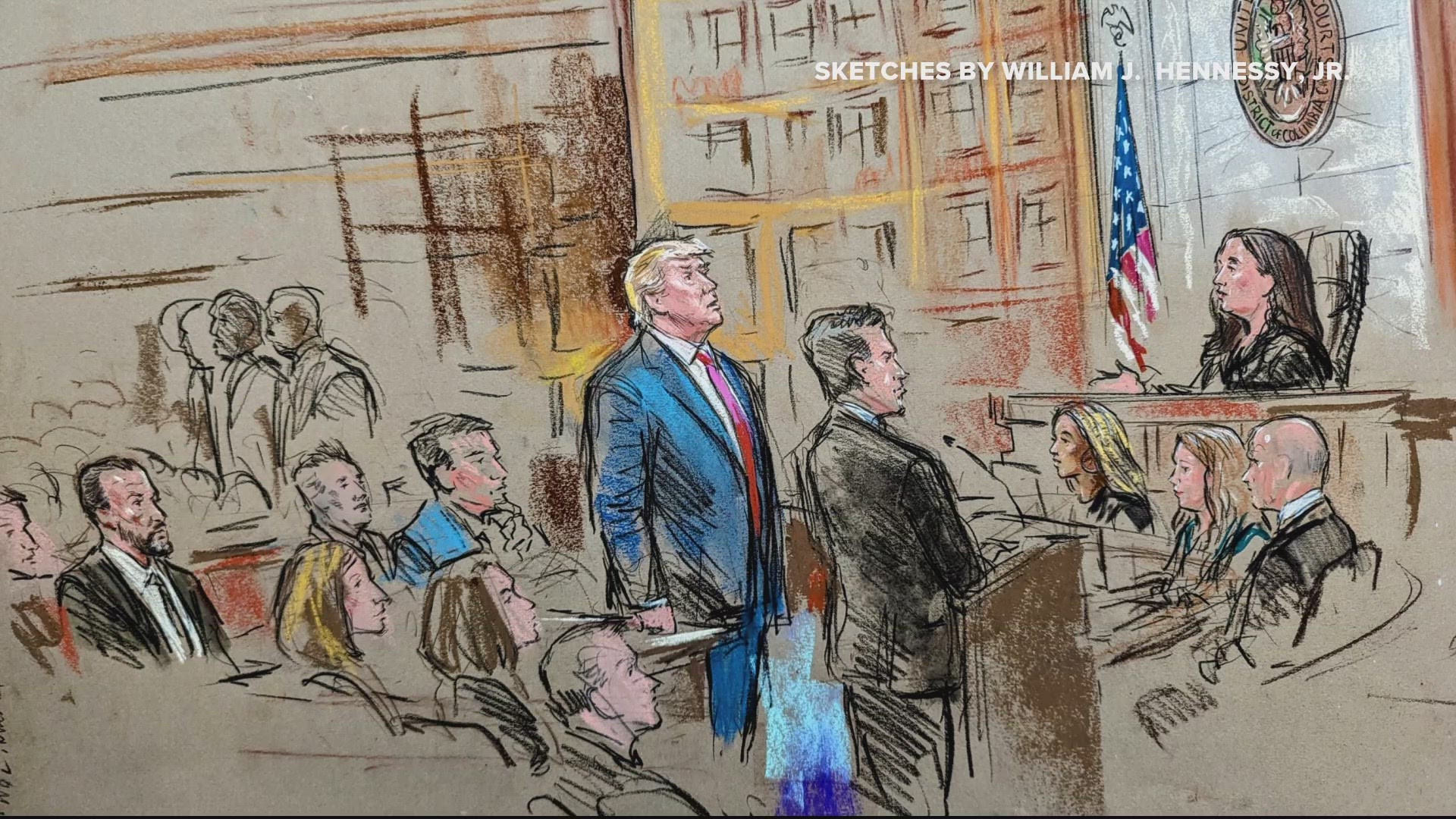WASHINGTON — Attorneys representing former President Donald Trump asked a federal judge on Thursday to throw out an indictment alleging he committed multiple crimes in his efforts to overturn the results of the 2020 election, arguing he should be immune from prosecution because he was acting within the scope of his role as president.
The 52-page filing from attorneys John Lauro, Todd Blanche and Gregory M. Singer relies on an expansive view of presidential immunity that would prevent Trump, or any other president, from being criminally prosecuted for any acts within the “outer perimeter” of his responsibilities as president. Their argument relies heavily on a 1982 Supreme Court ruling, Nixon v. Fitzgerald, that found the president has absolute immunity from liability for civil damages for official actions taken while in office.
“Although Fitzgerald concerned civil liability, the exact same, if not more elevated, concerns apply to potential criminal prosecutions, mandating the same absolute immunity,” Trump’s attorneys argue. “Vertical and horizontal separation of powers simply cannot permit local, state, or subsequent federal officials to constrain the President’s exercise of executive judgment through threats of criminal prosecution. To hold otherwise would be to allow the President’s political opponents to usurp his or her constitutional role, fundamentally impairing our system of government.”
In the motion, Trump’s attorneys argue the only way a president may be charged with a crime is through the impeachment process. Trump was impeached for incitement of insurrection by a 232-197 vote seven days after the Jan. 6, 2021, attack on the U.S. Capitol. President Joe Biden took office a week later on Jan. 20. Trump’s trial in the Senate did not start until February 9. He was ultimately acquitted by the Republican-led Senate after a 57-43 vote fell 10 votes short of the required two-thirds majority to convict him.
Trump’s attorneys argue Article II, Section 4 of the U.S. Constitution, which describes the process of impeachment for the president, vice president and other federal office holders, makes it clear that a president could only be liable for criminal prosecution if he was first convicted by the Senate.
“Here, President Trump is not a ‘Party convicted’ in an impeachment trial in the Senate,” the attorneys wrote. “In January 2021, he was impeached on charges arising from the same course of conduct at issue in the indictment. President Trump was acquitted of these charges after a trial in the Senate, and he thus remains immune from prosecution.”
Federal prosecutors led by Special Counsel Jack Smith have said they expected a presidential immunity argument and were prepared to respond. While Trump argues in his motion to dismiss that he was tried in the Senate on the same charges, the indictment returned by a grand jury in D.C. in August does not accuse him of inciting the riot at the Capitol, but rather of multiple conspiracies to defraud voters and obstruct the joint session of Congress by pressuring former Vice President Mike Pence to reject legitimate electoral votes.
The indictment alleges that Trump and at least six unnamed co-conspirators devised a plan to submit fraudulent slates of electors from multiple states, including Arizona, Michigan and Georgia. At the same time, prosecutors allege Trump and others pursued a plan to place then-Assistant U.S. Attorney General Jeffrey Clark in charge of the Justice Department in order to open “sham election crime investigations” to influence state legislators to adopt those slates of electors. Clark was one of 18 people indicted alongside Trump in Georgia in August in a separate case alleging they joined a “criminal enterprise” to overturn the results of the 2020 presidential election in that state.
Trump’s attorneys were expected back in federal court in D.C. on Oct. 16 for a motion hearing in the case. Earlier this week, U.S. District Judge Tanya S. Chutkan gave them until Oct. 11 to complete necessary steps to receive security clearances to view a small amount of classified material the government says is related to the investigation. Chutkan also last week denied a motion from Trump’s team to recuse herself from the case over statements she made during sentencing hearings for Jan. 6 defendants.

